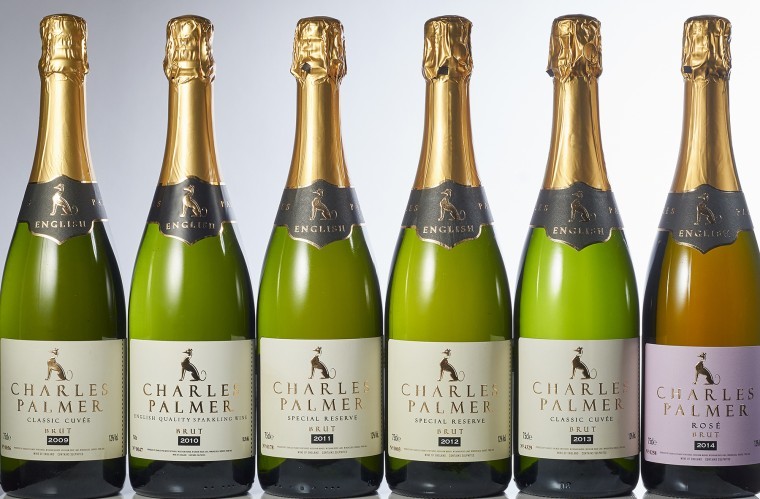Just a few weeks ago, it was revealed that The Black Swan in Oldstead, North Yorkshire, had shot straight to number one in a list of fine dining restaurants compiled by TripAdvisor. Soon afterwards, South East Farmer heard that The Black Swan – which has a Michelin star and four AA rosettes – had selected a sparkling classic cuvee from Charles Palmer Vineyards at Winchelsea, to be paired with their tasting menu.
“We saw the restaurant toasting its win with a bottle of our sparkling wine on BBC news,” said Sally Palmer, wife of Charles Palmer who, with their two children Robert and Catherine and their respective partners Chantal Butcher and Archie Muir-Mackenzie, have developed the vineyard since the first vines were planted in 2006.
The Black Swan is run by the Banks family, and chef Tommy Banks – who has been a finalist two years running in “The Great British Menu” – works closely with his brother James, who runs front of house. Mrs Palmer runs a B&B operation from Wickham Manor, a National Trust property where the Palmers live. In November, James Banks is going to Wickham Manor near Winchelsea to try the Palmer’s other wines – a Blancs de Blancs, a Special Reserve and a Rosé all based on Chardonnay and Pinot Noir grapes. If he likes them, he may well order more bottles to add to the 800 plus which have already gone to The Black Swan.
A combination of top industry prizes, praise from wine experts and recognition from The Black Swan and others has persuaded Charles Palmer and his family that the investment they are making in their wine business will provide a significant contribution to their farm income compared to the rest of the farming operation. In 2014, the Palmers won a gold medal and critics choice at the Sommelier wine awards with their 2009 vintage Classic Cuvée brut, and in 2015, they won the best drink product with their 2010 vintage brut in the National Trust fine farm produce awards.
Since 1998, the Palmers have been tenants of the National Trust on Wickham Manor Farm, which covers 750 acres. Most of this is taken up by a flock of 1,200 pedigree Lleyn sheep. The Palmers breed all their own replacements, and the flock has been closed since 1990.
There were 400 acres of arable crops on the farm, but these have been replaced by grass leys and haylage for the horse industry. “We have gone back into grass production because of the poor returns from arable,” Mr Palmer said. “The sheep don’t cost a lot, so we are not cutting back on those.”
The farm’s low intensity grassland is in the entry level and higher level stewardship schemes, and the sheep graze specific areas within them. The farm is also in an area of outstanding natural beauty and has a site of special scientific interest, although no payments are received for this.
Like many farming tenants, the Palmers are faced with increasing rents from landlords, including the National Trust. “Income from the farm is not enough to pay the rent so we have to rely on the B&B business and longer term prospects from our expanding wine business.”
The biggest of those prospects is the vineyard. Originally, five acres of Chardonnay and Pinot Noir vines were planted in 2006, but this was increased by 10 acres in 2015 and another 10 acres in 2016. Being so close to the sea produces a microclimate, which warms the air, and the vineyard is sheltered from the cooling coastal breeze by a ridge of hills. The subsoil is the same as growers have in Burgundy.
These superb conditions helped to protect the vines in April this year when many growers suffered from two sharp frosts. “We lost just 10% of our grapes,” said Mr Palmer. Rain in August and September filled out the grapes nicely, but also brought disease challenges. The exceptionally early harvest happened in mild weather which brought another challenge not seen before: fruit flies. Picking began on 10 October and went through until 16 October: normally, said Mr Palmer, the harvest happens in the last week of October.
To go with their fine harvest, the Palmers have taken the plunge and started a winery. Their wine used to be made by Will Davenport, but his business is expanding so much that he could no longer handle the Palmers’ grapes. Robert Palmer, who is on a relevant course at Plumpton College, will be the wine maker, and Mr Davenport will give advice.




